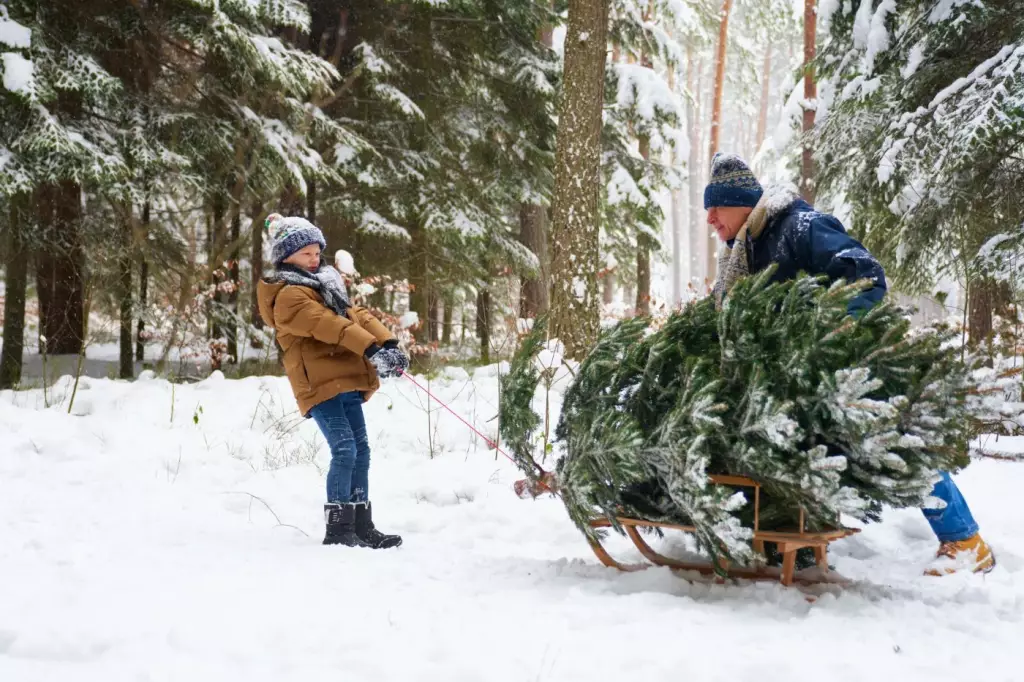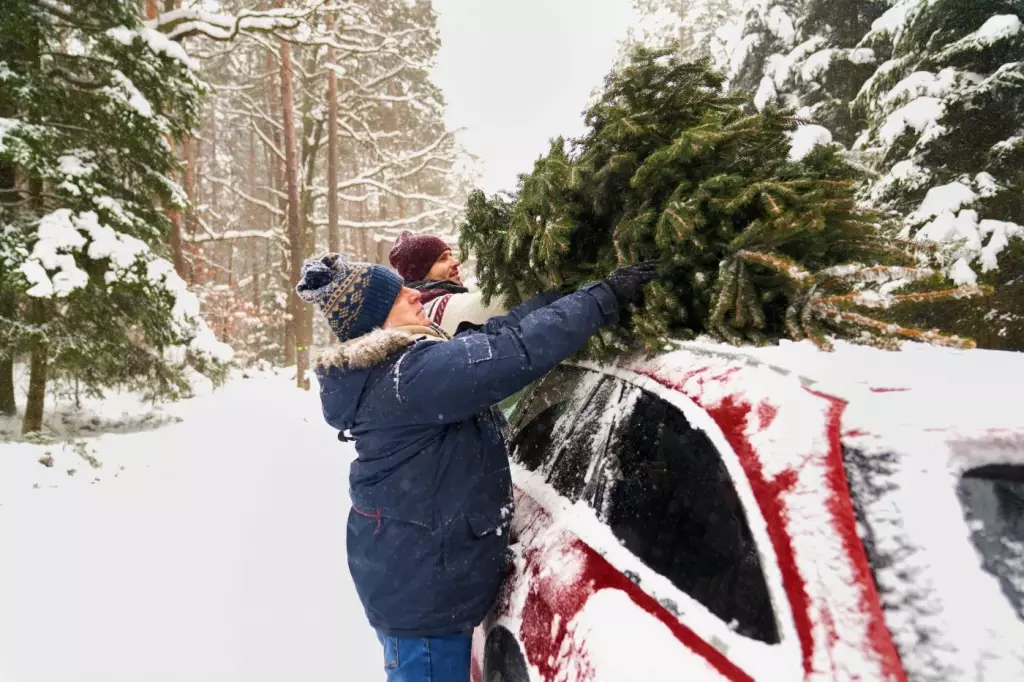The 13 Most Lucrative Grants to Start a Christmas Tree Farm
Like any business venture, starting a Christmas tree farm requires some initial capital to get off the ground. Fortunately, there are several grants available to help you launch your Christmas tree farm and set you on the path to success. In this article, we'll explore 13 of the most lucrative grants that cater specifically to individuals looking to start a Christmas tree farm.
The most profitable grants available to help fund your Christmas tree farm are:
- USDA Beginning Farmer and Rancher Development Program
- Rural Energy for America Program
- USDA Specialty Crop Block Grant
- Aggie Bonds Loan Program
- Beginning Farmer Loan Program
- Conservation Reserve Program
- Agroforestry Grant Program
These grants also include the Sustainable Agriculture Research and Education Program, Farm Service Agency Loans, Environmental Quality Incentives Program, Forestry Incentives Program, Tree Assistance Program, and State and Local Grants. Aside from a detailed business plan and proof of land ownership or leasing rights, what else are you required to prepare to apply for these grants? Let's find out.
Exploring these most lucrative grants available can provide a significant financial boost to kickstart your profitable Christmas tree farm from scratch.
Summary
- These grants can provide invaluable financial assistance, covering costs such as land acquisition, equipment, and operational expenses.
- The Aggie Bonds Loan Program and the FSA loans can help you access capital to purchase land, equipment, and other resources needed to start and expand your farm.
- Each grant may have its own unique eligibility criteria and application process, so it's important to carefully review the requirements before applying.
- You can also check for state and local grants and assistance programs available in your area.

On this page:
The Top 13 Grants for Christmas Tree Farms
Starting a Christmas tree farm can be a lucrative business opportunity, and there are many grants available to help you get started. In this section, we'll explore the top 13 grants that you can apply for to help fund your Christmas tree farm. With these grants and assistance programs, you have a solid starting point for securing funding and resources to establish and grow your Christmas tree farm.
USDA Beginning Farmer and Rancher Development Program
The USDA Beginning Farmer and Rancher Development Program provides funds to organizations that offer education, training, and technical assistance to new farmers. As a new Christmas tree farmer, you can benefit from these resources to grow your business.
Rural Energy for America Program (REAP)
REAP offers financial assistance to agricultural businesses for renewable energy systems and energy efficiency improvements. You can use this grant to invest in eco-friendly technologies for your Christmas tree farm.

USDA Specialty Crop Block Grant (SCBG)
The USDA Specialty Crop Block Grant program provides funds to enhance the competitiveness of specialty crops, including Christmas trees. This grant can help fund efforts to improve product quality, expand markets, and conduct research on pests and diseases.
Aggie Bonds Loan Program
The Aggie Bonds Loan Program provides low-interest loans to beginning farmers, including Christmas tree farmers. This program can help you access capital to purchase land, equipment, and other necessary resources for your farm.
Beginning Farmer Loan Program
Many states and local governments provide Beginning Farmer Loan Programs with low-interest loans for new farmers. These programs can help you access the funds you need to start your Christmas tree farm.
Conservation Reserve Program (CRP)
The CRP offers financial incentives for farmers who establish long-term, resource-conserving plant species on their land. You can use this program to help fund the establishment of Christmas tree plots on your farm.

Agroforestry Grant Program
Agroforestry Grant Programs support sustainable forest farming practices, including Christmas tree cultivation. These grants can help you promote environmental stewardship and sustainable production on your Christmas tree farm.
Sustainable Agriculture Research and Education (SARE) Program
SARE provides grants for research, education, and outreach efforts to help farmers adopt sustainable practices. You can use this grant to fund research and education initiatives that improve the sustainability of your Christmas tree farm.
Farm Service Agency (FSA) Loans
FSA loans provide affordable financing for farmers, including new Christmas tree farmers. These loans can help you purchase land, equipment, and other resources needed to start and expand your farm.
Environmental Quality Incentives Program (EQIP)
EQIP provides financial assistance to help agricultural producers implement conservation practices on their farms. You can use this program to invest in practices that enhance the quality of your Christmas trees while protecting the environment.

Forestry Incentives Program (FIP)
The Forestry Incentives Program provides cost-sharing assistance to private forest landowners who undertake tree planting and other forestry practices. This program can help reduce the expenses associated with establishing and managing your Christmas tree farm.
Tree Assistance Program (TAP)
TAP provides financial assistance to eligible orchardists and nursery tree growers to replant or rehabilitate eligible trees, bushes, and vines. If your Christmas tree farm faces losses due to natural disasters, this program can help cover the costs of recovery.
State and Local Grants
Don't forget to check for state and local grants and assistance programs available in your area. These programs can often provide additional support and resources specifically tailored to your region's needs.
Researching the government and nonprofit grant programs that can help defray some of the upfront expenses involved in establishing your Christmas tree farm operation may enable you to launch your new business with fewer out-of-pocket costs during the initial investment years.
Application Process for Grants and Some Tips

In this section, we'll cover the application requirements for these grants and provide some strategies for writing a successful grant proposal.
Application requirements for grants
Gather all the necessary documentation and information to meet the application requirements. Some common requirements when applying for grants may include:
- A detailed business plan outlining your Christmas tree farm's objectives, target market, and financial projections
- Proof of land ownership or leasing rights for the property where the farm will be located
- Compliance with local regulations and environmental standards
- A clear statement of the grant's intended use within your business
- Financial statements and/or tax returns that demonstrate financial need and business viability
Grant writing strategies to help you write a strong proposal
Applying for grants can be a competitive process. Therefore, it's crucial to submit a well-crafted application that stands out from the crowd. Here are some strategies:
-
Follow the guidelines: Carefully read the grant application instructions and adhere to the requested format, word count, and submission requirements. This demonstrates your attention to detail and ensures that your application is easy to review.
-
Be specific and concrete: Clearly explain your business goals, how the grant funds will be used, and how they relate to the grant's objectives. Use facts, figures, and examples to support your claims.
-
Show your passion and commitment: Grant reviewers want to fund businesses that have a clear vision and are passionate about their work. Showcase your dedication to your Christmas tree farm and how it aligns with the grant's mission.
-
Have a clear and organized structure: Make your proposal easy to read by using headings, subheadings, bullet points, and graphics where appropriate. This helps reviewers quickly understand the essential information in your application.
-
Proofread and edit your work: A well-written proposal is more likely to receive funding than one with grammatical errors and inconsistencies. Double-check your work, and consider having a knowledgeable friend or colleague review it as well.